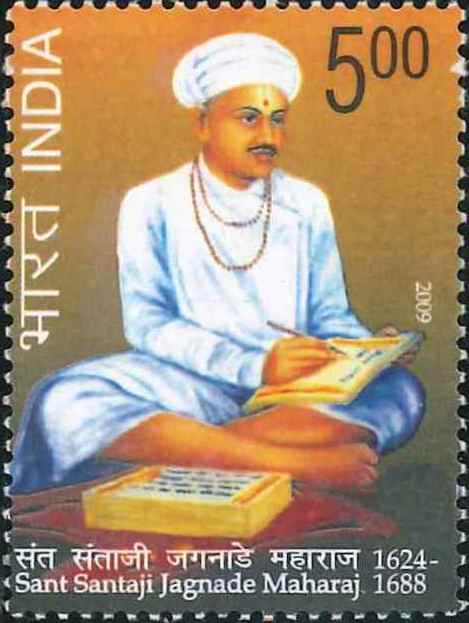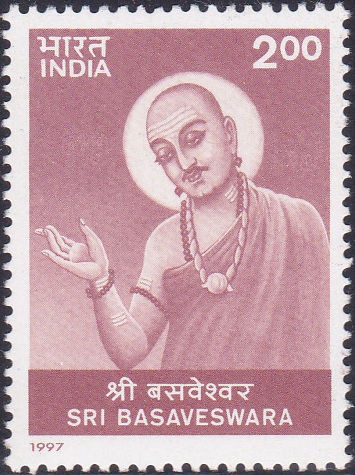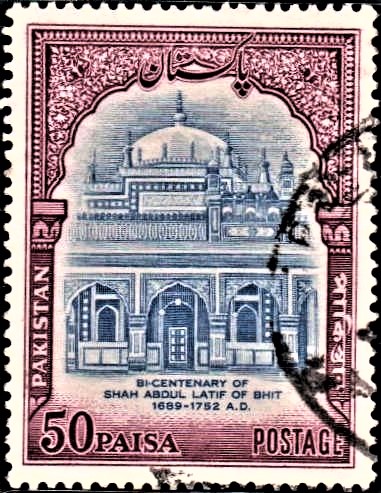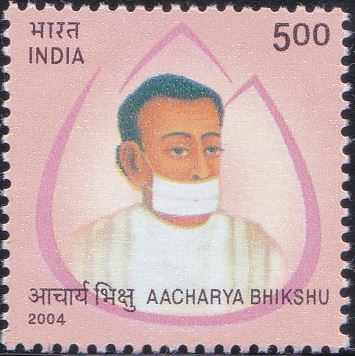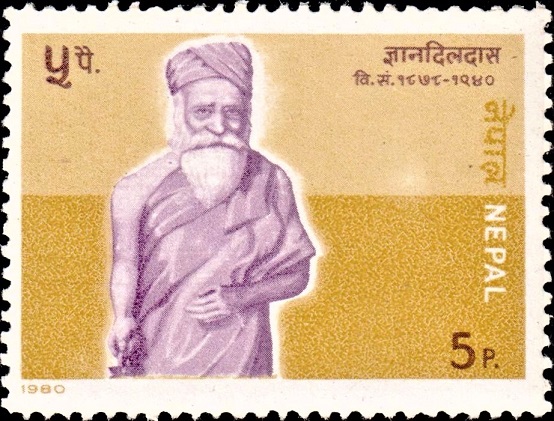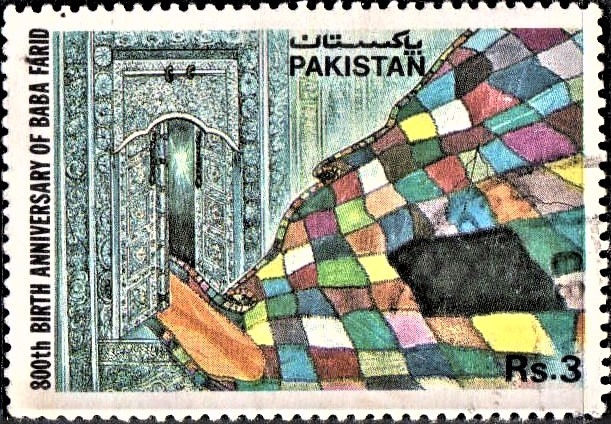
Baba Farid
A commemorative postage stamp on the 800th Birth Anniversary of Sheikh Farid :
 Issued by Pakistan
Issued by Pakistan
Issued on Oct 20, 1989
Issued for : To commemorate this august occasion Pakistan Post Office is issuing one commemorative postage stamp of Rs. 3/- denomination on October 20, 1989.
Designers :
Miss Syeda Farah Batul
Miss Syeda Fareeda Batul
Type : Stamp, Postal Used
Denomination : Rs. 3/-
Colour : Multi colour
Size of Stamp : 51 x 35 mm
Size of Print : 47 x 31 mm
Perforation : 13C
Paper : 102 gum dual purpose coated PVA gum
Quantity : One Million
Number of stamps in a sheet : 56 (fifty six) (8 x 7)
Process of Printing : Litho Offset
Printer : Pakistan Security Printing Corporation
Name : Khwaja Fariduddin Masud Ganjshakar
Born on Apr 4, 1179 at Kothewal, Multan, Punjab, Ghurid Sultanate [now in Pakistan]
Died on Oct 17, 1265 at Pakpattan, Punjab, Delhi Sultanate [now in Pakistan]
About :
- Farid–ud–Din Masud, commonly known as Baba Farid Ganj Shakar was born in the twelfth Century AD at Khotwal near Multan. His grandfather Qazi Shurib had migrated from Kabul during the early period of 12th Century.
- Baba Farid’s first teacher, whose influence was most lasting, was his mother Qursum Bibi, a lady of fervent piety. Then he joined the Madrassa of Maulana Minhaj–ud–Din where he met Khwaja Bakhtiar Kaki, the renowned disciple of Khawaja Syed Moin–ud–Din Chishty. They were contemporaries of Sheikh Baha–ud–Din Zikriya. It is also reported that Baba Farid received education in Qandhar.
- Baba Farid after completing his education joined Khawaja Bakhtiar Kaki as his disciple. Few saints in the long chequered history of Indo-Muslim mysticism have subjected their physical self to such rigorous spiritual disciple as Baba Farid. His life of 95 years is an illustration of the way in which a devotee struggles to shatter human limitations and liberates himself in order to live and lead his life for his Lord.
- The mystic belief in God had a value in terms of human life. It made him a citizen of that universal society in which God is the Supreme Intelligence and all human beings, His manifestation.
- Baba Farid’s place in the history of Chisti School of Islam and in the socio-political annals of Asia is unique. He was the first poet of commitment in this region who struggled against poverty, misery, exploitation and the degradation of human beings.
- Once he was offered a pair of scissors which he returned with the remarks that his mission lies in joining and stitching and not tearing or cutting.
- He had the distinction of establishing an educational institution at Ajodhan, now Pakistan, where he trained a long chain of scholars like Hazrat Nizam–ud–Din Aulia, Ali Sabir of Kaliar Sharif and Syed Badar–ud–Din Ishaque who in turn furnished inspiration for creating an ideal realm of values.
- Baba Ji always emphasised the importance of time and religion in human life. There is no substitute for time and religion in this world, and we should protect our faith with knowledge, was the teaching of Baba Farid. He used to preach that greatness and honour in fact correlate in doing justice. He advised his students not to lower themselves in an attempt to secure high worldly positions. As regards knowledge he is quoted to have said that one who leads the life of ignorance is like a dead corpse.
- He is the first mystic poet who developed social relations with the non-muslim religious thinkers of the Sub-continent. Lively debates on current philosophical thoughts developed into deep understanding between scholars of various disciplines and people representing different languages, cultures and nationalities. This attitude was practical demonstration of the principle of ‘Tauheed’. The humble but persuasive attitude of Baba Farid absorbed a number of tribes in the fold of Islam from the banks of Sutlej to the pinnacles of Hindu Kush.
- His conscious decision to migrate from Delhi, the Capital City, at the age of 70, after he had acquired the spiritual leadership of the Chishti School of Islam in the wake of death of Hazrat Bakhtiar Kaki, can be better understood and appreciated now when we find that it was due to his efforts that the Muslim population increased in this part of the subcontinent which ultimately helped the founding fathers to demand Pakistan on the basis of the numerical strength of the Muslims.
- Through his poetry he sang the songs of human dignity, inalienable rights of the members of human race, their right to lead honourable life, freedom from want and fear and opportunities to develop human personality. In this process he also warned the privileged classes and the ruling elite that death is the common destination of every living soul. Death levels all and sundry and those indulging in exploitation are in fact social criminals who will be dealt with severely.
- He vehemently stressed that poverty, hunger and need is the negation of Islam and in fact fought against human misery through his teachings, sermons and poetry.
- His abiding influences on literature, various movements in the Sub-continent and mysticism is widely acknowledged. His poetry and message had a direct appeal and was couched in such a celestial tone that Guru Nanak Sahib incorporated these verses in Guru Guranth Sahib which is now an article of faith for the devotees of Baba Nanak Sahib.
- (Contributed by Chairman, Baba Farid International Conference 1989).
- Issued by The Director General, Pakistan Post Office Department, Islamabad.



